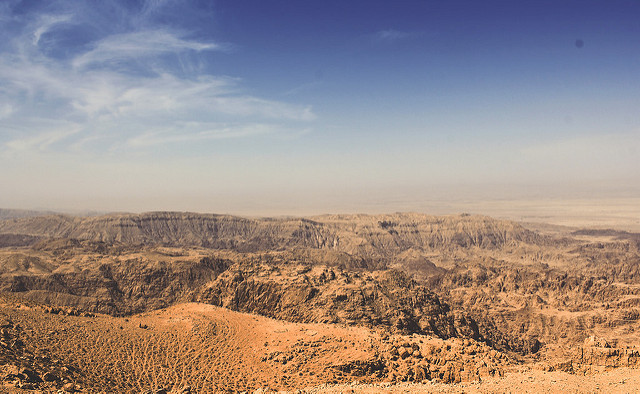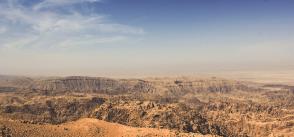
What will happen if the world no longer has water?
Jordan could be the first country to run out of water, but it likely wouldn’t be the last.
Summer is always scorching in Amman, Jordan, but last July was particularly brutal for Tarek el-Qaisi, a mechanic who lives with his family in the eastern part of the city. A gang of thieves tapped into the power lines across from his home, and the electricity provider cut off the entire street for a fortnight. With no fans or fridges, the treeless, concrete neighborhood felt like a blast furnace. The next day, a nearby sewage pit backed up, enveloping his apartment with a sickening stench. The flies loved it, but all three of el-Qaisi’s school-age children got sick. By the time his boss lowered his salary, citing slow business, the young mechanic thought nothing could faze him. “It’s hell,” he says, “but it’s not like we have a choice.”
The sudden loss of his water supply, however, has left him nearly hopeless. With no municipal water access, el-Qaisi and his neighbors have always had to rely on private tanks to service their cisterns. But recent construction at the foot of the hill on which they live has severed that lifeline. The whale-size trucks can no longer get close, so residents are now dependent on what they can carry up the steep, uneven roads. Unable to properly wash their clothes or even clean dishes, they’re slowly reconciling themselves to a world with almost no water. “I come home dirty and sometimes can’t wash,” says el-Qaisi, his arms and face flecked with sweat and motor oil. “It’s humiliating. No one should have to live like this.”
Without drastic action, many Jordanians may share his plight. The Jordan River, the country’s lone waterway, is dirty and depleted, while some of its aquifers have been pumped almost beyond repair. The nation’s annual rainfall is set to slide dramatically due to climate change, even as its population continues to swell. Jordan is too poor to turn to costly, large-scale desalination—or fix its leaky infrastructure. And the country’s population growth shows few signs of slowing, so it can’t fall back on water imports, as some lightly populated Pacific and Caribbean island nations have done. Water shortages have gotten so bad, they’ve already sparked clashes between refugees and native Jordanians, and the officials charged with catering to booming demand with a shrinking supply are beginning to panic. “We have to look outside Jordan,” says Ali Subah, secretary-general for strategic planning at the Ministry of Water and Irrigation. “There are no more water resources here.”
Read the full article by Peter Schwartzstein via Newsweek.
[Photo by Je suis Eli | Flickr]







